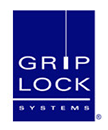Industry News
World Bank Group Selects LRC To Test Off-Grid Lighting Products In Support Of Lighting Africa
February 02, 2011
The Lighting Research Center (LRC) at Rensselaer Polytechnic Institute was recently awarded a World Bank Group contract to perform laboratory testing of LED-based, off-grid lighting products for Lighting Africa, a joint IFC and World Bank program. Lighting Africa seeks to accelerate the development of commercial off-grid lighting markets in Sub-Saharan Africa to improve access to modern, clean lighting and related energy services for people at the base of the pyramid.
“The product testing work that the Lighting Research Center will carry out is a central element of Lighting Africa’s program to help consumers identify good quality products and to prevent market spoiling in off-grid lighting markets in Sub-Saharan Africa,” said Arne Jacobson, Ph.D., senior advisor in the Office of Policy and International Affairs at the U.S. Department of Energy and technical lead for the Lighting Africa quality assurance team. “The Lighting Research Center’s deep experience in the lighting field positions them well to make a significant contribution to efforts to support the development of emerging markets for affordable off-grid lighting products in Africa and beyond.”
The results of the LRC’s tests will be used by the World Bank to provide feedback to manufacturers and institutional buyers for the region, and they may also help form the basis of a lighting quality seal recognizable by consumers as part of the overall Lighting Africa quality assurance strategy. This strategy supports market development, provides technical advisory services to quality oriented companies, and protects the interests of low-income consumers.
“Providing access to affordable, high-quality LED technology to the ‘energy poor’ of Africa has the potential to improve the health and safety of millions while boosting the region’s economy,” said Principal Investigator Nadarajah Narendran, Ph.D., Rensselaer professor, LRC director of research and head of LRC’s solid-state lighting program. “We are pleased to apply our experience in leveraging and evaluating LED technology in support of Lighting Africa’s efforts to improve quality of life through lighting.”
According to the World Bank Group, 589 million people in Africa lack modern energy.
Over the course of the next 18 months, the LRC will be testing LED-based off-grid lighting products, in particular solar-charged light emitting diode (LED) lighting but also lighting systems with a range of charging systems and energy storage technologies. The tests are designed to evaluate a host of performance and reliability criteria.
About Lighting Africa
Lighting Africa, a joint IFC and World Bank program, seeks to accelerate the development of commercial off-grid lighting markets in Sub-Saharan Africa as part of the World Bank Group’s wider efforts to improve access to energy. Lighting Africa is helping mobilize the private sector to build sustainable markets to provide 2.5 million people with safe, affordable, and modern off-grid lighting by 2012. The longer-term goal is to eliminate market barriers for the private sector to reach 250 million people in Africa without electricity, and using fuel based lighting, by 2030. Improved lighting provides significant socio-economic, health and environmental benefits such as new income generation opportunities for small businesses. Lighting Africa is a key element of the global Solar and LED Energy Access (SLED) program, an initiative of the Clean Energy Ministerial. For more information, please visit www.lightingafrica.org.
Lighting Africa is implemented in partnership with the Africa Renewable Energy and Access Grants Program (AFREA), the Asia Sustainable and Alternative Energy Program (ASTAE), the Energy Sector Management Assistance Program (ESMAP), the Global Environment Facility (GEF), Good Energies Inc., Italy, Luxembourg, the Netherlands, Norway, the Public-Private Infrastructure Advisory Facility (PPIAF), the Renewable Energy and Energy Efficiency Partnership (REEEP) and the United States.









































